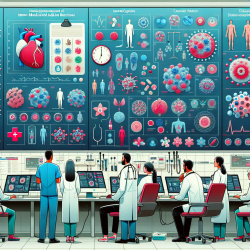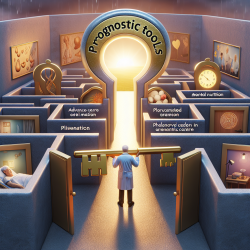The landscape of cancer treatment has evolved significantly with the introduction of immune checkpoint inhibitors (ICIs), a class of drugs that empower the immune system to target and destroy cancer cells. While these therapies have revolutionized cancer care, they also present unique challenges for healthcare providers, particularly in the emergency department (ED). Immune-mediated adverse reactions (IMARs) associated with ICIs can mimic other conditions and require distinct management approaches. This blog explores how ED practitioners can enhance their skills by applying research insights on IMARs.
Understanding Immune-Mediated Adverse Reactions
ICIs work by inhibiting immune checkpoints, such as cytotoxic T-lymphocyte antigen-4 (CTLA-4) and programmed death-1 (PD-1), which are natural regulators of immune activation. While effective in treating various cancers, ICIs can lead to IMARs that resemble autoimmune diseases. These reactions most commonly affect the gastrointestinal, respiratory, endocrine, and dermatologic systems. Prompt recognition and appropriate management are crucial, as most IMARs resolve with treatment, allowing patients to continue their ICI therapy.
Key Strategies for Managing IMARs in the ED
The research article "Challenge of immune-mediated adverse reactions in the emergency department" highlights several strategies for ED practitioners:
- Early Recognition: Familiarize yourself with the common presentations of IMARs, such as diarrhea, pneumonitis, and dermatologic reactions. Understanding these patterns aids in distinguishing IMARs from other conditions.
- Differential Diagnosis: Rule out infectious causes and other common conditions that may present similarly. This step is crucial for accurate diagnosis and effective management.
- Treatment Coordination: Collaborate with oncologists to ensure that treatment plans align with ongoing cancer therapy. High-dose steroids are often used to manage IMARs, but coordination is essential to avoid disrupting cancer treatment.
- Patient Education: Educate patients about potential side effects of ICIs and encourage them to report symptoms promptly. This proactive approach can prevent complications and improve outcomes.
The Importance of Continued Research
The dynamic nature of cancer treatment necessitates ongoing research into the mechanisms and management of IMARs. Practitioners are encouraged to stay informed through continuous education and collaboration with oncology specialists. By engaging with current research and clinical guidelines, healthcare providers can enhance their ability to manage these complex reactions effectively.
The article "Challenge of immune-mediated adverse reactions in the emergency department" serves as a valuable resource for practitioners seeking to deepen their understanding of IMARs. To read the original research paper, please follow this Challenge of immune-mediated adverse reactions in the emergency department.










